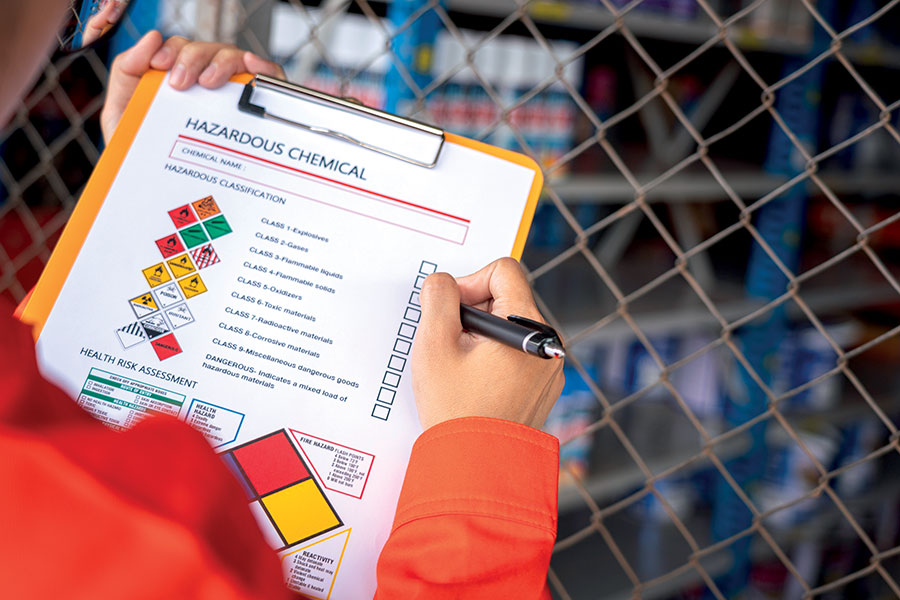How to navigate the evolving landscape of chemical storage
28th February 2024
In the UK, the safe storage of chemicals – especially in the farming industry – has taken on an increasingly critical role. Jane Billing of Billie Box shares the current trends, risks and necessary compliance measures for effective chemical storage.

With stringent regulations in place and the potential for severe consequences in cases of non-compliance, it’s essential for businesses, particularly in the agricultural sector, to stay informed and prepared.
The rising importance of safety and compliance
The risks associated with improper chemical storage are significant. In the farming community, where chemicals are used routinely, the threat extends beyond immediate health hazards to include environmental damage and legal repercussions. UK regulations governing chemical storage are strict, with non-compliance resulting in hefty fines and potential legal action.
Press reports in November 2023 highlight two recent cases of farmers being hit with heavy fines for pollution of watercourses. A cheesemaker in Somerset was ordered to pay fines and costs of over £23,700 for a third pollution offence on their farm. The case was brought by the Environment Agency after reports of white discolouration in a watercourse, which was found to have been caused by a blockage in a pipe that took waste water away from the cheese production facility to the onsite treatment works, which had overflowed into the watercourse. The blockage was caused by a plastic bag containing gloves and other plastic.
Another farming group was fined £1,500 for causing pollution by the discharge of slurry that entered Grindle Brook in 2021.
Regulatory changes and industry response
UK regulations on chemical storage are changing – becoming more stringent to ensure safety and environmental protection. These changes require businesses to be alert and responsive. For instance, the Control of Substances Hazardous to Health (COSHH) regulations demand proper assessment and management of substances, necessitating regular reviews of storage facilities.
The UK farming industry, in particular, has seen a push towards more secure and compliant storage solutions, reflecting a commitment to safety and environmental stewardship.
Employee training and awareness
In the context of UK chemical storage, employee training and awareness is paramount. The complexities of UK-specific regulations, like COSHH, require staff to be well-trained in safely handling and storing chemicals. This includes understanding the risks, knowing the emergency procedures, and identifying potential hazards. Regular training sessions and updates are vital to ensure that all team members know the best practices and the latest regulatory requirements.
Best practice for compliance in the UK
To maintain compliance with UK regulations, several best practices should be followed:
- Regular risk assessments: Regularly assess the storage facilities to identify and mitigate risks
- Appropriate storage solutions: Use storage solutions that comply with UK regulations, ensuring chemicals are stored safely, securely, and in an organised manner
- Labelling and documentation: Clearly label all chemicals and maintain accurate records as required by UK law
- Emergency procedures: Have clear procedures in place for dealing with spills or other emergencies
- Regular audits: Conduct audits to ensure ongoing compliance and identify areas for improvement.
Remain proactive and informed
An ever-evolving set of challenges and regulations marks the landscape of chemical storage in the UK farming industry. Staying ahead requires a balanced approach that combines compliance with safety best practices, regular training, and a commitment to environmental stewardship.
As we move forward, UK businesses – especially in farming – must remain proactive and informed, ensuring that their practices meet current standards and are prepared for future changes. By doing so, they protect not just their workforce and the environment, but also the very future of their operations.

